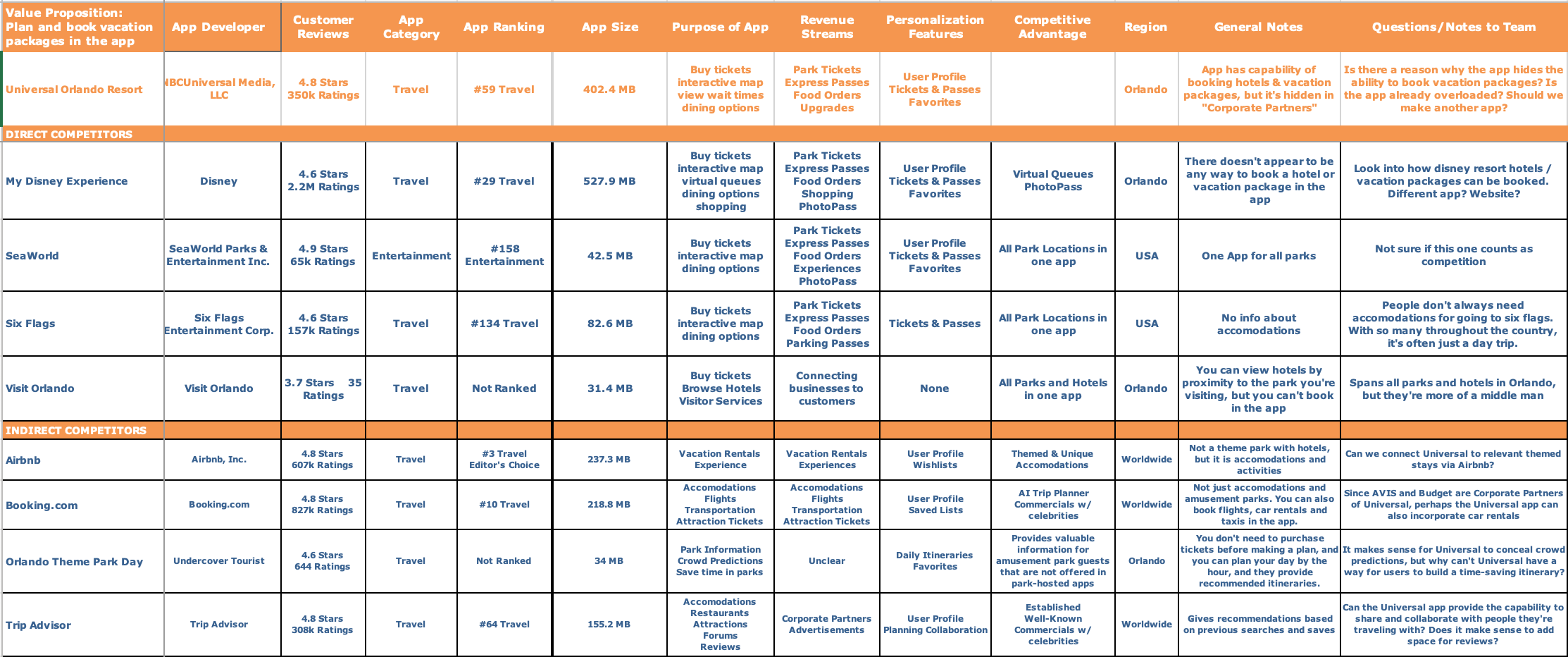Universal Orlando Resort App
UX Research Case Study
Objective:
This research project explored how the Universal Orlando Resort app could better serve users with limited incomes by improving accessibility, saving time and money, and streamlining the vacation planning experience.
Approach:
I conducted user interviews, competitive analysis, and secondary research to identify challenges users face when planning a theme park vacation – particularly guests working in underpaid service industries.
Participants:
The study focused on low-income users across the food service sector, many of whom were parents juggling family obligations and budget constraints. Their insights helped clarify the need for time-saving tools, cost transparency, and personalized planning features.
Key Findings & Insights
Users want affordable, all-inclusive vacation packages clearly presented in the app.
The current booking and planning features are buried or confusing, adding stress to an already high-stakes experience.
Guests benefit from customizable itineraries and budget-friendly hotel suggestions within close proximity to the resort.
Offering more economic ticket options and improving app navigation could boost accessibility for a wider audience.
Recommendations:
Redesign the app’s main menu to prioritize hotel and package bookings.
Integrate a custom itinerary builder using data already available in the app.
Provide budgeting tools and pricing tiers to empower users with financial constraints.
Enhance transparency around available resources and simplify the planning flow.
Outcome:
This case study deepened my understanding of user-centered research and its power to support inclusion and empathy in digital design. While I did not move into prototyping, the project laid a solid foundation for a redesign that could make theme park vacations more accessible to the people who work hardest to afford them.


















